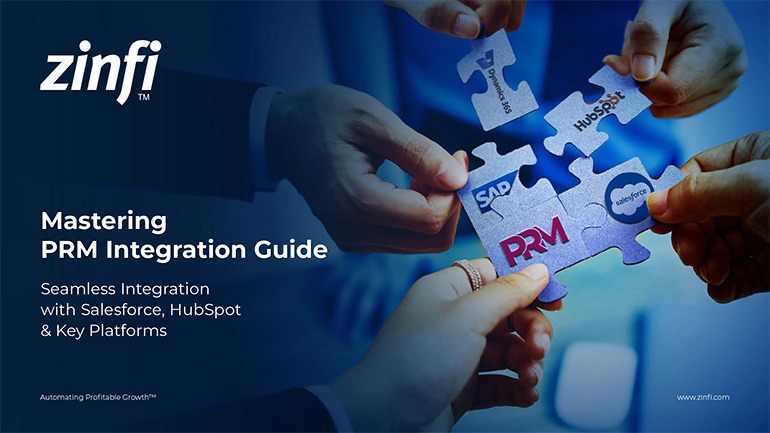Glossary - How to - Ecosystem Governance
How to Implement Effective Ecosystem Governance?
Introduction
Defining Ecosystem Governance and Its Relevance in the Partner Ecosystem
Ecosystem governance refers to the frameworks, policies, and strategies organizations implement to manage, regulate, and optimize relationships within a business ecosystem. This governance ensures that all partners, suppliers, customers, and stakeholders operate within a structured and efficient framework that promotes collaboration and growth. Companies in an increasingly interconnected world leverage ecosystem governance to maintain compliance, enhance operational efficiency, and drive value creation.
Within the partner ecosystem, ecosystem governance is crucial in maintaining structured relationships and ensuring all stakeholders adhere to predefined standards and best practices. Companies that lack strong governance may struggle with inefficiencies, regulatory risks, and misaligned partnerships, which can lead to reduced competitiveness in the market.
The Role of Ecosystem Governance in Partner Management Automation
In the digital age, partner management automation plays a significant role in ensuring effective ecosystem governance. Automated platforms help organizations standardize processes, track compliance, manage partner performance, and streamline communications. Systems without proper governance can become ineffective due to inconsistent rules and data management. Therefore, integrating robust governance principles with automation enhances collaboration, enforces policies, and improves overall efficiency within the partner ecosystem.
Key Takeaways:
Establishing Clear Governance Policies and Guidelines:
A strong ecosystem governance strategy begins with well-defined policies and guidelines. Organizations should establish clear rules regarding data sharing, compliance, security, and ethical considerations. These policies should be communicated effectively to all partners to ensure consistency.
Leveraging Technology for Governance Automation:
Modern governance relies heavily on digital tools such as Partner Relationship Management (PRM) platforms to monitor compliance, track partner engagement, and enforce policies. Automation reduces administrative burdens and ensures partners adhere to governance standards.
Enhancing Collaboration through Transparent Communication:
Governance frameworks must foster open communication among stakeholders. Businesses can prevent misunderstandings and promote alignment across the ecosystem by ensuring all partners access relevant information.
Monitoring and Measuring Governance Effectiveness:
Organizations should implement key performance indicators (KPIs) to assess the effectiveness of their ecosystem governance strategy. Regular audits and feedback loops allow continuous improvement and adaptation to changing market conditions.
Ensuring Compliance with Regulatory and Industry Standards:
Strong governance frameworks help businesses comply with industry regulations, data protection laws, and security standards. Organizations must stay updated with evolving legal requirements and adapt governance policies accordingly.
Summary of Key Takeaways:
Effective ecosystem governance requires clear policies, automation, transparent communication, continuous monitoring, and regulatory compliance. Companies that integrate these strategies can build a resilient and efficient partner ecosystem.
Key Examples:
- Automotive Manufacturing: In the automotive sector, ecosystem governance ensures suppliers adhere to safety and environmental regulations while facilitating efficient collaboration between manufacturers and distributors.
- Consumer Electronics: Governance in this industry helps companies manage product lifecycle processes, intellectual property, and supply chain transparency to mitigate risks and enhance efficiency.
- Energy Production: Energy companies rely on governance frameworks to ensure regulatory compliance, sustainability initiatives, and effective partnerships with contractors and suppliers.
- Financial Services: Strict governance policies are essential to ensure compliance with anti-money laundering (AML) laws, data protection regulations, and risk management practices.
- Food and Beverage: Ecosystem governance in this industry ensures food safety standards, supply chain transparency, and ethical sourcing practices to maintain consumer trust.
- Healthcare Services: Healthcare organizations use governance frameworks to manage partnerships, ensure patient data protection, and comply with stringent regulatory requirements.
- Information Technology: In the IT sector, governance ensures data security, intellectual property protection, and efficient collaboration between software vendors, service providers, and clients.
- Pharmaceutical Development: Pharmaceutical companies rely on governance to manage clinical trial collaborations, regulatory compliance, and intellectual property rights.
- Retail Industry: Retailers implement governance frameworks to manage supplier relationships, customer data security, and ethical sourcing practices.
- Telecommunications: Governance in telecom ensures compliance with data privacy regulations, fair competition laws, and network security standards.
Conclusion:
Ecosystem governance ensures structured, efficient, compliant partner ecosystems across various industries. Organizations can build strong and sustainable business ecosystems by implementing clear policies, leveraging automation, enhancing communication, monitoring effectiveness, and ensuring compliance. Partner management automation further strengthens governance by enforcing standards and streamlining collaboration, making governance a cornerstone of business success in today’s interconnected world.
Associated Keywords:
- Ecosystem Governance Framework
- Partner Ecosystem Compliance
- Governance Automation Best Practices















